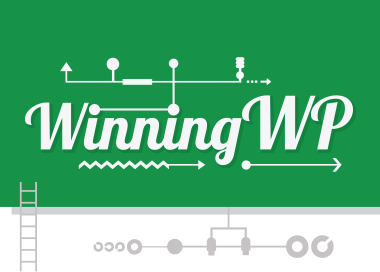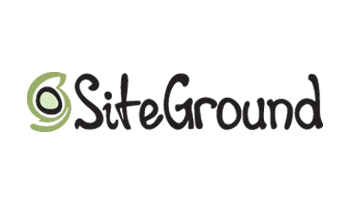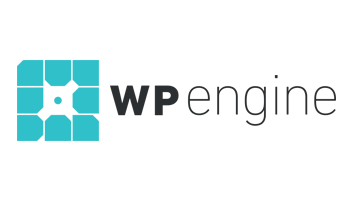What’s the Difference Between a Domain Name and Web Hosting?
- By
- Last updated:
- Leave your thoughts
What’s the difference between a domain name and web hosting? This is a very common question for anyone who’s thinking of launching their own website — and rightly so.
Domain names and web hosting go well together — in fact, one rarely exists without the other, going together like a burger and fries.
Essentially, if you’re the kind of person who’s thinking about getting a domain name, in 100% of the cases — yes 100% — you’ll need web hosting as well.
But let’s start with the answer to our first question.
The Difference between a Domain Name and Web Hosting in a Nutshell
- A domain name is your website’s address on the web. It identifies the website and lets people find it via their Chromes or Firefoxes.
- Web hosting (or web host, or web server, or just hosting) is the place where your website files (and all your website data) are kept, and from where the website can be accessed by your website visitors. Most commonly, a web server is a specialized type of computer.
Basically, when a visitor puts your website’s domain name into their web browser window, that domain name is then taken and decoded to figure out what specific web host (web server) it points to. Once this is done, the website gets displayed to the visitor.
This will surely come as no surprise, but the web is quite a complicated creation, and domains and hosting are just a small part of a bigger puzzle. Luckily for everyone, you really don’t need to be an expert on those things to be able to launch a website for your business and show it to the world.
Just to emphasize the core difference between a domain name and web hosting once more:
- Domain names are how we address websites on the web.
- Web hosting is where we keep those websites.
If you want to learn more, here are some FAQs around the difference between a domain name and web hosting:
FAQ
‘What Is a Domain Name, Really?’
As I mentioned, a domain name is your website’s address on the internet. But there’s more to discover here.
There are two main ways in which we can break down what domain names are:
1. Domain names are a type of pointer that lets us — humans — access things on the web more easily.
Like I mentioned above, when a visitor puts your website’s domain name into their web browser window, that domain name is taken and decoded to figure out what specific web host address it represents.
That specific web host address is called an IP address (or IP).
So, in this case, we use domain names to indicate where we want to go on the web, and then computers take those domain names and translate them to actual IPs to figure out what we mean.
In that light, a domain name is:
- a more human-friendly version of an IP
- a unique identifier that you can choose to represent your website in a catchy way.
If you want to learn more about IPs and how addressing things on the web works, click here.
2. Domain names are made up of two main components.
Take a look at this site’s domain — winningwp.com
- The
winningwppart is what’s called the second level domain (SLD). When registering your domain, you can make this part whatever you wish — any sequence of alphanumeric characters (a-z, A-Z, 0-9), hyphens or words — but no spaces. - The
compart is what’s called the top level domain (TLD). You can’t choose this freely as you can with the SLD — there’s a finite set of available TLDs. The most popular ones arecom,net,org,co, and also a number of regional ones, such asco.uk(for the UK),ca(for Canada), and so on.
To learn more about what a domain name is, click here — we have a separate guide just on that.
‘How Do I Get a Domain Name?’
A domain name can be purchased by going to what’s called a domain name registrar.
In most cases, a domain name will cost you around $10 a year. After every year (or after every two years, depending on your initial purchase) the domain needs to be renewed.
The most popular domain name registrars, and the ones we recommend are:
‘Does It Matter Which Domain Registrar I Choose?’
No. There are no situations in which some domains are only available with one registrar, but not with the other.
Every domain registrar can basically sell you the same global domains.
One caveat: Please notice the word global in the paragraph above. In some situations, if you want to purchase a local domain — for instance, a pl domain for Poland — you may need to go to a local domain name registrar operating in the country of your interest.
For most cases, again, GoDaddy or NameCheap will work just fine.
‘What’s a Web Server? And How Does Web Hosting Actually Work?’
Strictly speaking, a web server is very much like a standard computer — the one you have at home (albeit, it’s much more purpose-built).
- Firstly, it’s on and hooked up to the internet 24/7/365.
- Secondly, it’s tailor-made to store and serve websites. You can’t play Call of Duty or watch a movie on it — it’s for websites only. Under the hood, your website is basically a bunch of files and data, so it needs a place where it can be kept safely.
That said, there are different kinds of web hosting platforms based on your requirements and the type of website you want to host:
- Shared hosting platforms — where you share a server machine with other customers of the hosting firm.
- Dedicated hosting platforms — where you get a whole machine to yourself.
- Specialized WordPress hosting (be it shared or dedicated, or something in between) — where you get to put your site on a machine that’s been optimized to run WordPress websites only. This is actually the kind of hosting that we generally recommend.
Want to learn more? We have an awesome post that goes a little deeper into web hosting and the different types — check it out here.
‘How Do I Get Web Hosting?’
The most convenient way of getting your hands on web hosting is to purchase a hosting subscription from a reputable hosting firm.
In this day and age, you don’t necessarily need to buy a physical server from anyone to be able to host your website. Renting out some hosting space is much more user-friendly — and much cheaper.
Some of the main hosts we recommend for WordPress sites are:
‘I’ve Seen Companies Offering Both a Domain Name and Hosting in One Package, Should I Get This?’
There are a number of companies out there that will offer you the complete WordPress package under one roof, so to speak. What you get is:
- a domain name
- a hosting plan
- (optionally) WordPress preinstalled on the server and everything hooked up and ready to go.
As you can probably tell, getting your domain name and hosting from a company like that is much more convenient than getting the individual ‘website components’ separately.
In most cases, a firm offering the package will handle everything related to setting it up and allowing you to get your (blank) WordPress website online as soon as possible, with basically no tech/server-related work needed on your part.
A few of the leaders offering packages such as this include:
All clear?





All comments are held for moderation. We'll only publish comments that are on topic and adhere to our Commenting Policy.